 The 11 Most Common Keto Side Effects
The 11 Most Common Keto Side Effects
The ketogenic diet is a powerful new tool to hit the mainstream recently. This style of eating has substantial data behind it showing that it can boost fat-burning, reduce inflammation, boost cognitive performance, and more. What has not been covered quite enough are common keto side effects and how you can avoid them to make the best of this powerful eating style.
Although there can be many different side effects that manifest while becoming keto-adapted, they all stem from similar underlying issues. In this article, I outline what those underlying issues are, their related keto side effects, and simple strategies to overcome them so you can become keto-adapted as smoothly as possible.
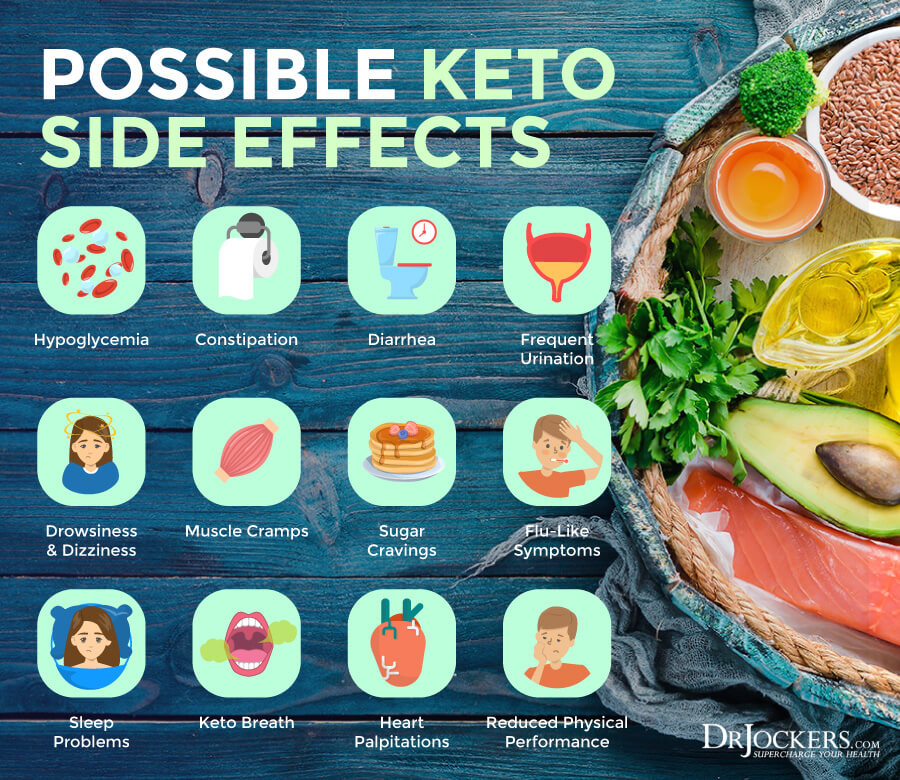
Three Primary Causes
Although there are a variety of symptoms that can arise during keto adaptation, they mostly manifest from the same three underlying causes. Hypoglycemia (low blood sugar), Hypothalamic-Pituitary-Adrenal (HPA) axis dysfunction, and electrolyte/mineral deficiencies.
While these three causes are seemingly different, they are actually all related. When becoming keto-adapted initially, your body has been running on sugar for years. When you suddenly switch to fats, your body has to essentially build the cellular machinery necessary to generate and utilize ketone bodies as a fuel source.
This means that instead of generating tons of ketones from the very beginning, most people experience hypoglycemia for a period of time. With hypoglycemia comes a disruption in cortisol signaling which is what accounts for the HPA axis dysfunction. Finally, HPA axis dysfunction leads to an increase in secretion of minerals from the body in the urine.
Together, these three causes can create all kinds of keto side effects. Once you understand them, though, a little bit of extra planning can help mitigate them from ever happening.
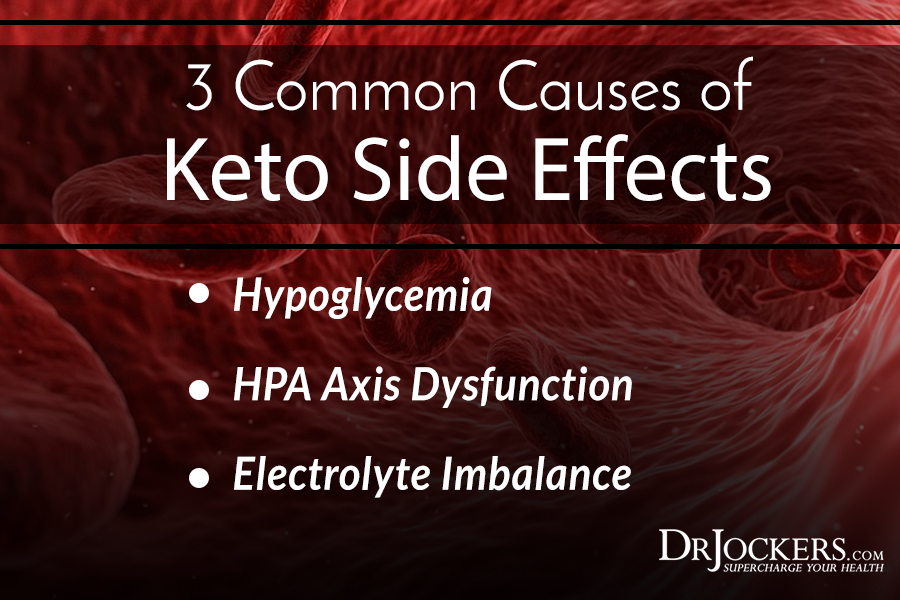
Hypoglycemia
As I briefly mentioned already, hypoglycemia is the first underlying cause to contribute to side effects during keto-adaptation. This is because the body simply doesn’t know how to burn fat for energy yet.
During the adaptation phase, people commonly feel brain fog, fatigue, dizziness, intense hunger, irritability, and depression.
Although hypoglycemia is normal in the beginning, these keto side effects should subside within weeks of beginning a ketogenic diet. Look out for these signs and take steps to support your body during this time.
Keto Flu
This is perhaps one of the most well-known keto side effects. Keto flu is exactly what it sounds like, the onset of flu-like symptoms that arises shortly after beginning a ketogenic diet. This includes symptoms like fatigue, runny nose, nausea, and headache.
Keto flu is a classic manifestation of hypoglycemia that can be corrected with simple strategies that I will outline shortly.
Sugar Cravings
Many people find that during the beginning stages of a ketogenic diet, they experience intense food cravings. These food cravings are typically for high-sugar foods and tend to really challenge your willpower.
This is a classic hypoglycemia response as well. The brain, in particular, requires lots of energy for normal function. When it receives a signal that you are hypoglycemic, a panic response occurs because of an underlying perception that you are starving to death (even if, consciously, you know you’re not).
At this point, your brain begins to tell you that, “YOU NEED IMMEDIATE ENERGY NOW OR YOU’RE GOING TO DIE”! This is when you have intense sugar cravings. Luckily, once you begin to produce ketones for energy, this panic response calms down.
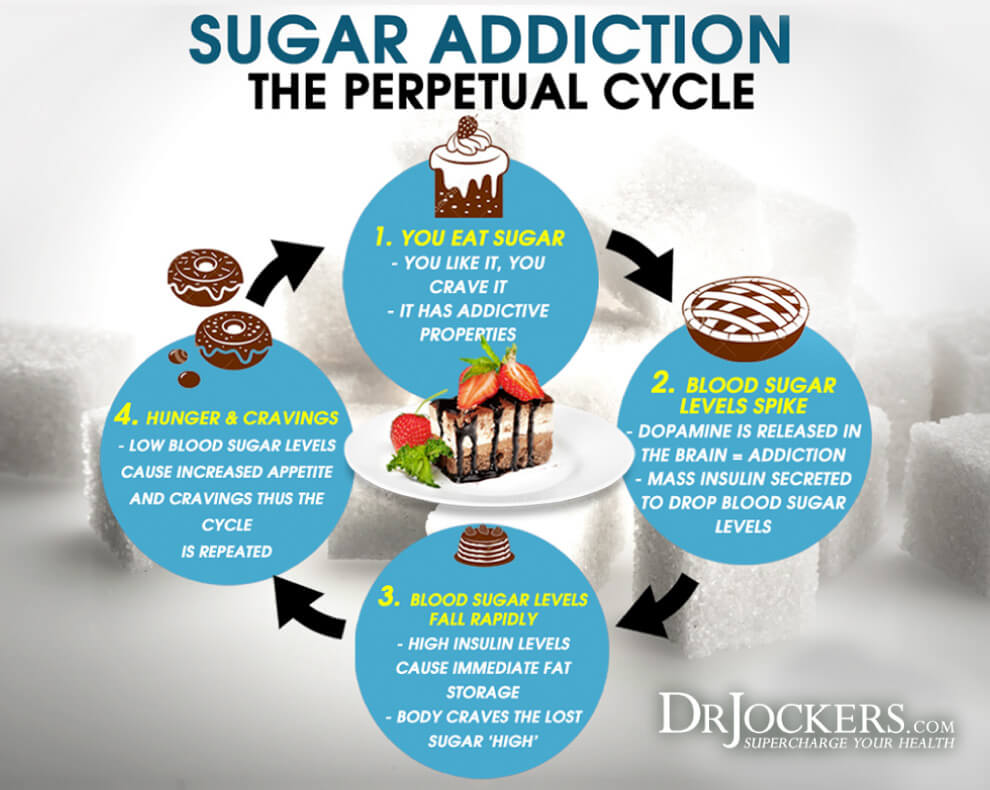
Dizziness & Drowsiness
When you are hypoglycemic while also not being fully keto-adapted, you essentially have an energy deficiency within the body. This is a short-term adaptation that can lead to a variety of keto side effects.
During this time, you will likely feel dizzy and drowsy due to a general lack of energy. You may feel especially dizzy upon standing due to blood pressure dysregulation and inappropriate cortisol response (HPA axis dysregulation, which we’ll talk about shortly).
Reduced Strength & Physical Performance
During keto-adaptation, your body is learning to utilize a completely new fuel source that it has not had to use before. The muscles (along with the brain) contain tons of mitochondria for energy production that must now learn to utilize ketones as an energy source.
During this time, you will likely feel a significant drop in strength and ability to exert physical energy as one of the short-term keto side effects. Luckily, once you become adapted you should see drastic improvements in these areas that are even greater than when you were sugar-adapted!
Hypoglycemia Mitigation Strategies
As you can see, a significant proportion of keto side effects are attributed to hypoglycemia. These are my top strategies for addressing these issues.
- Eat Every 3-4 Hrs: Eat every 3-4 hours in the beginning stages of a ketogenic diet. This will help keep you satiated and blood sugar balanced.
- Drink Mineral-Rich Drinks: Instead of plain water, drink mineral-rich beverages between meals. This includes organic broths or a high-quality electrolyte drink (like this one)
- Hydrating and Mineral Rich Foods: Consume plenty of hydrating, mineral-rich foods and use salt generously. I like to snack on celery, cucumbers, and especially seaweed in the form of these Sea Snax. These are like seaweed chips that taste great and contain a lot of beneficial minerals.
- Use Exogenous Ketones: Exogenous ketones are a fantastic way to train the body to use ketones for fuel before our body is good at creating ketones. They also buffer hypoglycemic responses by providing ketones the body can use for energy rather than having a significant stress response when blood sugar drops. A great exogenous ketone product that also has adaptogens and electrolytes is Keto Edge
- Use Magnesium Supplementation: If you follow these strategies and continue to feel many of these symptoms, consider adding a magnesium supplement to your regimen. I would recommend taking the L-threonate form (such as our Brain Calm Magnesium) in a 1-gram dose, 3x per day between meals.
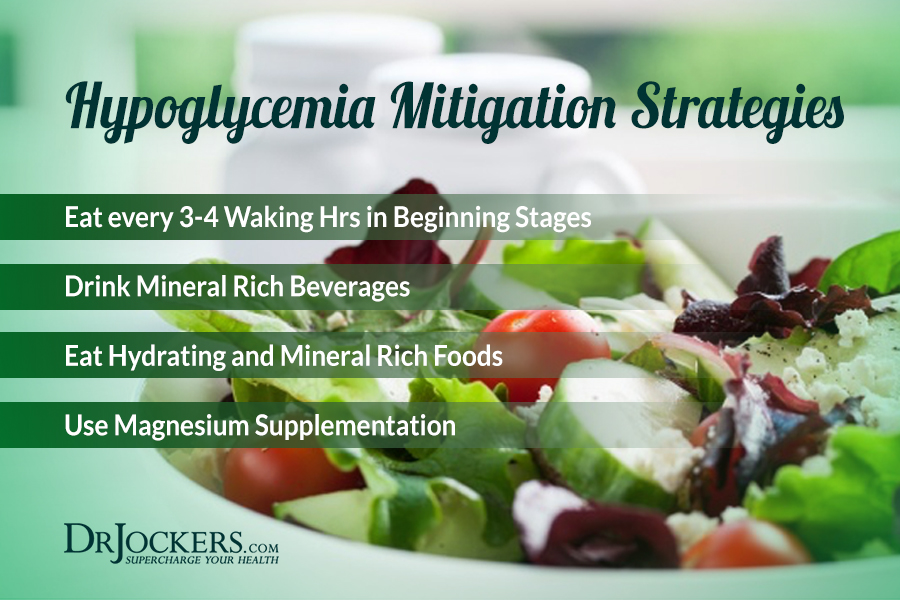
HPA Axis Dysfunction
The HPA Axis is a series of three glands (Hypothalamus, Pituitary, and Adrenals) that are primarily responsible for regulating our stress response in the body.
When we experience hypoglycemia, as I mentioned before, the brain goes into an emergency response to starvation. In addition to sugar cravings, the adrenals will release cortisol. Cortisol signals the release of stored glucose in the body (glycogen stores) to provide immediate energy.
Because of this response, glycogen stores are quickly burned up, hypoglycemia reoccurs, and the cycle continues. This is where HPA axis dysregulation promotes the onset of related symptoms while also exacerbating hypoglycemia-related issues.
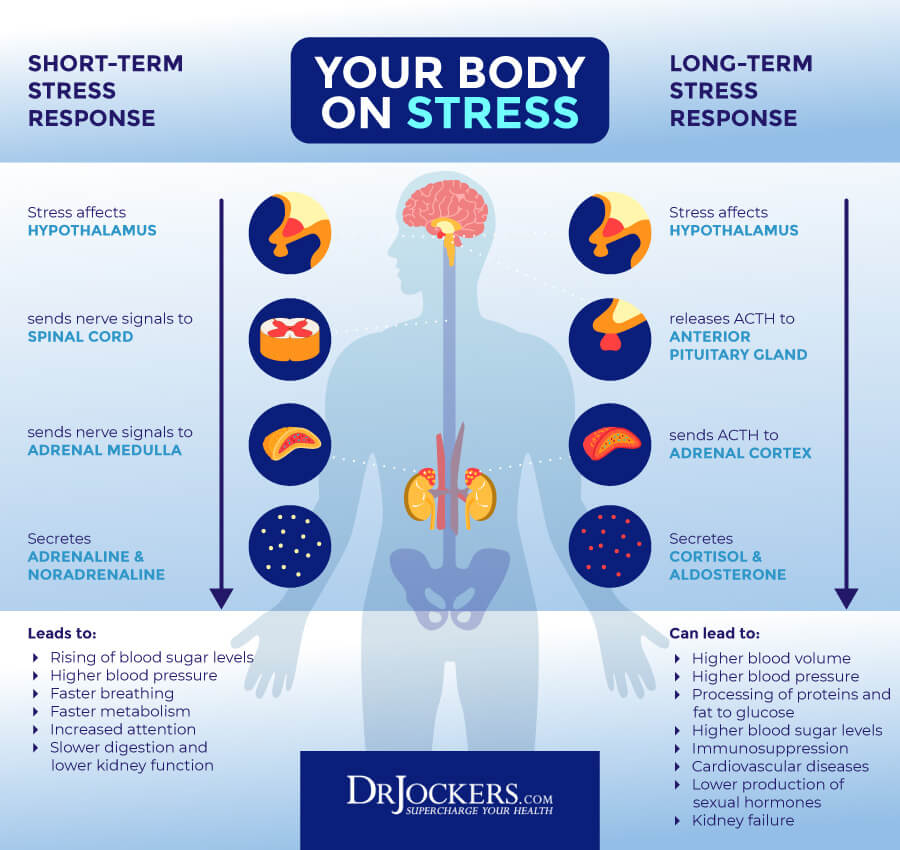
Sleep Problems
With HPA axis dysfunction, you are likely to experience a disruption in sleep. This is because cortisol is antagonistic to melatonin (meaning it opposes its function). When the HPA axis is thrown off, cortisol levels begin to fluctuate and interfere with the release of melatonin that occurs at night.
To review briefly, hypoglycemia stimulates the release of cortisol. Cortisol signals the release of stored glucose in the body, called glycogen, from the liver and muscle tissue. Cortisol is a stimulating hormone that can disrupt sleep if this response happens at night. This results in either insomnia or very poor quality sleep.
Although this cortisol response is helpful in emergencies, you want to try and minimize it as much as possible during keto-adaptation and especially at night.
Heart Palpitations
Many people will notice heart palpitations during the early phases of keto adaptation. This can be attributed to hypoglycemia, HPA axis dysfunction, and mineral imbalances.
During HPA axis dysregulation, cortisol can become abnormally high. If it remains high, the body will develop cortisol resistance. To compensate, the body begins to secrete higher amounts of adrenaline, which can then cause irregular heart rhythms or atrial fibrillation.
Additionally, the loss of minerals that we are about to discuss can lead to a reduction in blood volume and pressure that can cause the heart to pump faster or even irregularly.
Supporting The HPA Axis
Like I said already, during the initial adaptation phase of a ketogenic diet, there is potential for the HPA axis to become dysregulated. During this time, it would be advantageous to take precautions to support the HPA axis as best as you can.
These are my top strategies for HPA axis support during keto-adaptation to reduce keto side effects:
- Blood Sugar Balancing Strategies: Follow the blood sugar regulation strategies outlined above. Hypoglycemia is one of the primary triggers of cortisol dysregulation, so address this first!
- Magnesium Supplementation: This is outlined above, but I want to touch on it again here. Magnesium is a powerful support for the HPA axis. Magnesium L-threonate, in particular, is the only form proven to be able to cross the blood-brain barrier, which means it can exert its effect on the hypothalamus and pituitary glands.
- Use Adaptogenic Herbs: Although this strategy is not absolutely necessary, using adaptogenic herbs can tremendously benefit the HPA axis and help build your resiliency to stress. By supporting the HPA axis and helping to regulate cortisol levels, adaptogens may prove very helpful in mitigating HPA axis-related side effects.
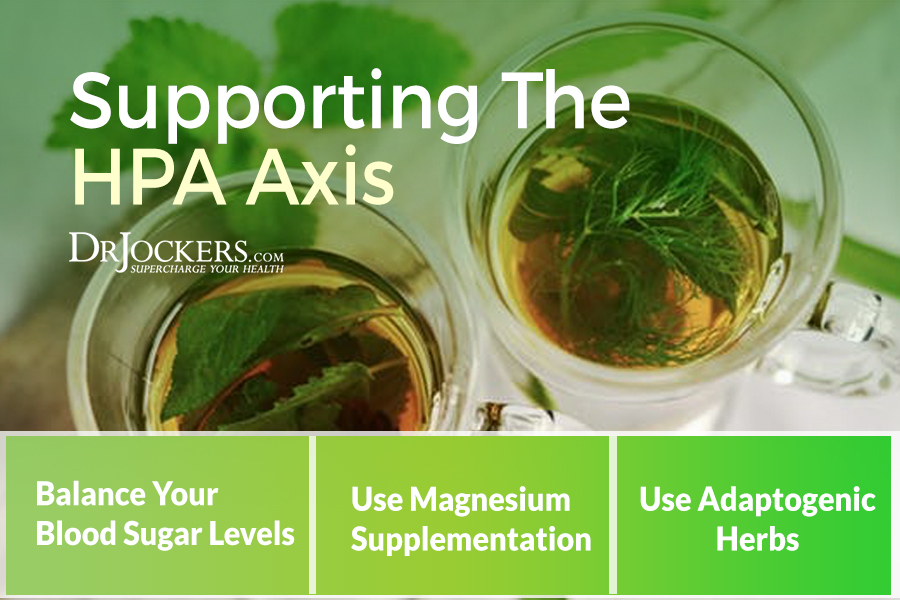
Electrolyte/Mineral Deficiencies
Electrolytes and minerals serve the vital function of regulating hydration while supporting proper nerve conductivity. During keto-adaptation, an excess of minerals is excreted through the urine due to HPA axis dysregulation.
This is because, in addition to cortisol, the HPA axis is also responsible for regulating hydration levels through the retention and excretion of minerals. In a sense, HPA axis dysregulation can also lead to hydration dysregulation. Likewise, there are common keto side effects that occur, which manifest from these imbalances.
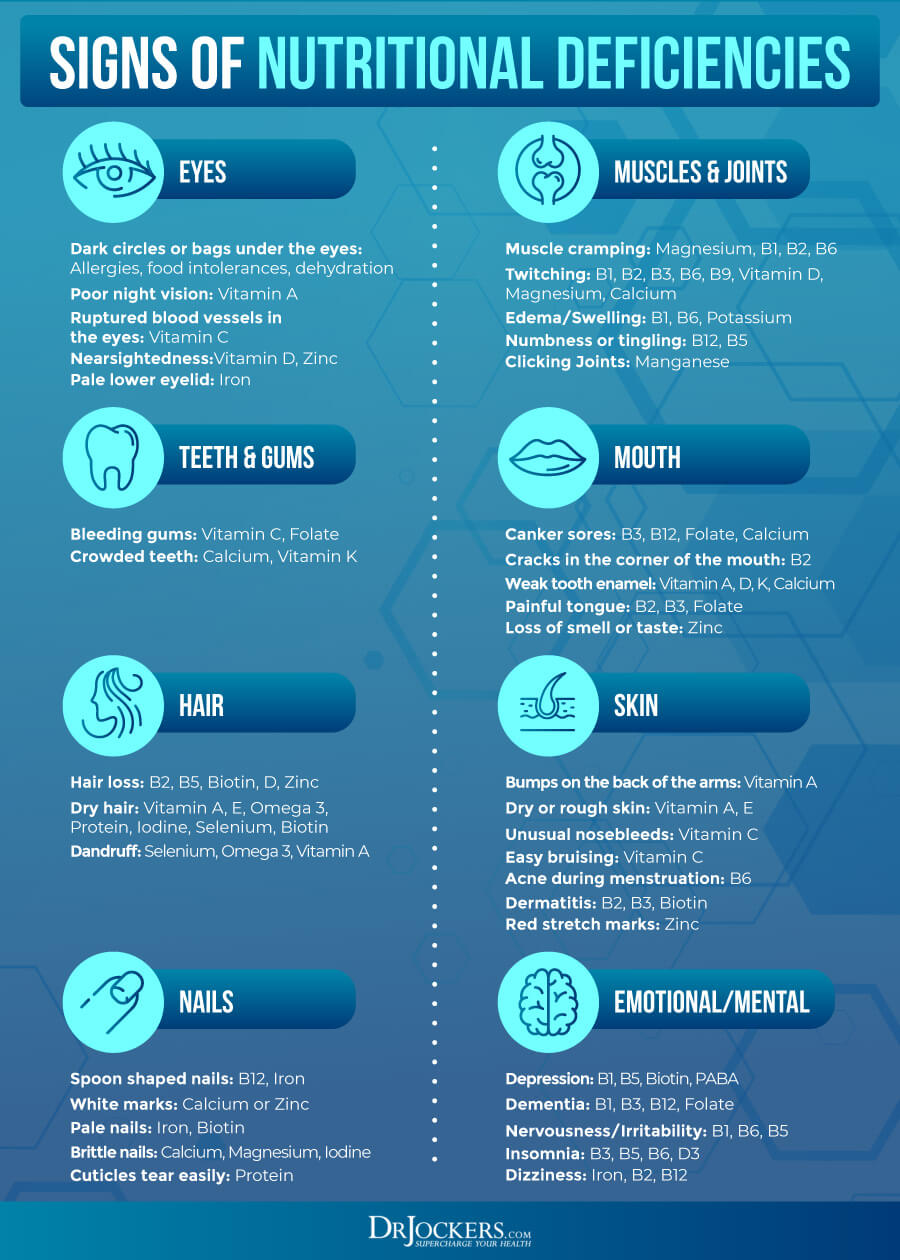
Frequent Urination
The most obvious sign that your electrolyte/mineral balance is being affected is an increase in urination. On a low-carb diet, insulin levels drop, which promotes the secretion of sodium in the urine. Sodium pulls more water into the urinary system, which is then excreted as well. This is a very normal one of the keto side effects, and a positive sign that you are moving towards keto adaptation.
Additionally, as your body burns through glycogen stores in the liver and muscles, excess water is released into the urinary system. While getting rid of this extra water is helpful in releasing toxins from the body, you want to make sure you are taking in additional fluids, electrolytes, and minerals to avoid other related side effects.
Constipation
Constipation is a key sign that you are not maintaining electrolyte/mineral balance during keto adaptation. The consistency of someone’s stool, and therefore the ability to pass that stool, is heavily influenced by its water content. The water content of your stool is likewise influenced by your overall hydration levels.
Additionally, constipation may also be a side effect of a change in your microbiome. Your gut bacteria makeup is largely determined by the kinds of foods you eat. When making such a drastic change in your diet, your microbiome will change, which can also temporarily change your stools.
Also consider: Certain foods can tend to be more conducive to constipation. Foods like eggs, cheese, and nuts may be contributing to constipation. Reduce intake of these at least during the initial phases of keto adaptation and see if that makes a difference. You want your stool to pass easily and resemble type 3 or 4 on the chart below.
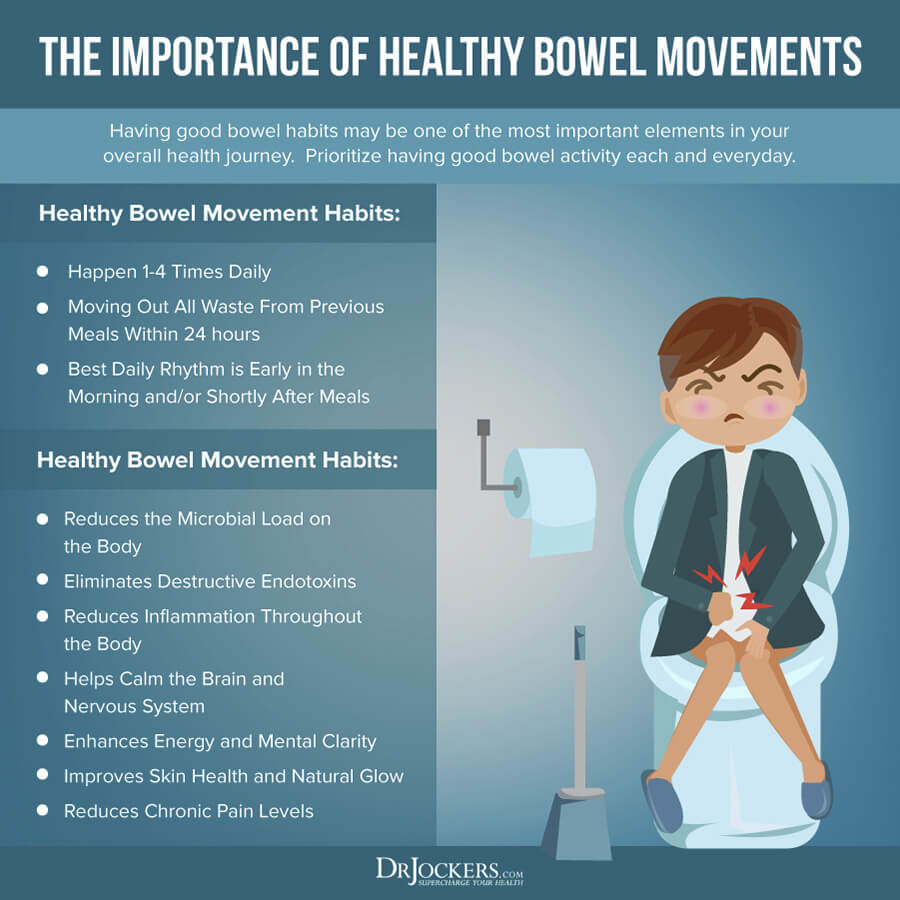
Diarrhea
Sometimes people will experience diarrhea during the initial phases of a ketogenic diet. Although constipation is typically more common, diarrhea may also manifest due to the changes in the microbiome that occur when changing your diet.
These individuals would benefit from taking a bulking and binding agent such as psyllium husk, citrus pectin, or my favorite, activated charcoal. I have people do 2-3 grams of activated charcoal every 3 hours until the diarrhea subsides.
Also Consider: For some individuals, diarrhea may be brought on by low stomach acid and/or a sluggish gallbladder. Another possibility is that you have a low-grade food sensitivity to something you are eating, such as eggs, nuts, and cheese.
Also, if you are supplementing with high doses of magnesium or vitamin C, it is recommended to back off on this until diarrhea has subsided, as these can draw additional water into the colon.
If you are taking spoonfuls of salt in water, it may also have a laxative effect. Try getting your salts in gradually throughout the day by just adding a pinch of salt to water and salting your foods to your desired taste.
Muscle Cramps
A common one of the keto side effects people experience in the early phase is muscle cramps. If you experience frequent muscle cramps while becoming keto-adapted, this is likely due to mineral imbalances.
As I mentioned before, minerals are crucial for proper nerve impulse conductivity. A muscle cramp is essentially a misconducted impulse brought on by poor hydration and mineral balance.
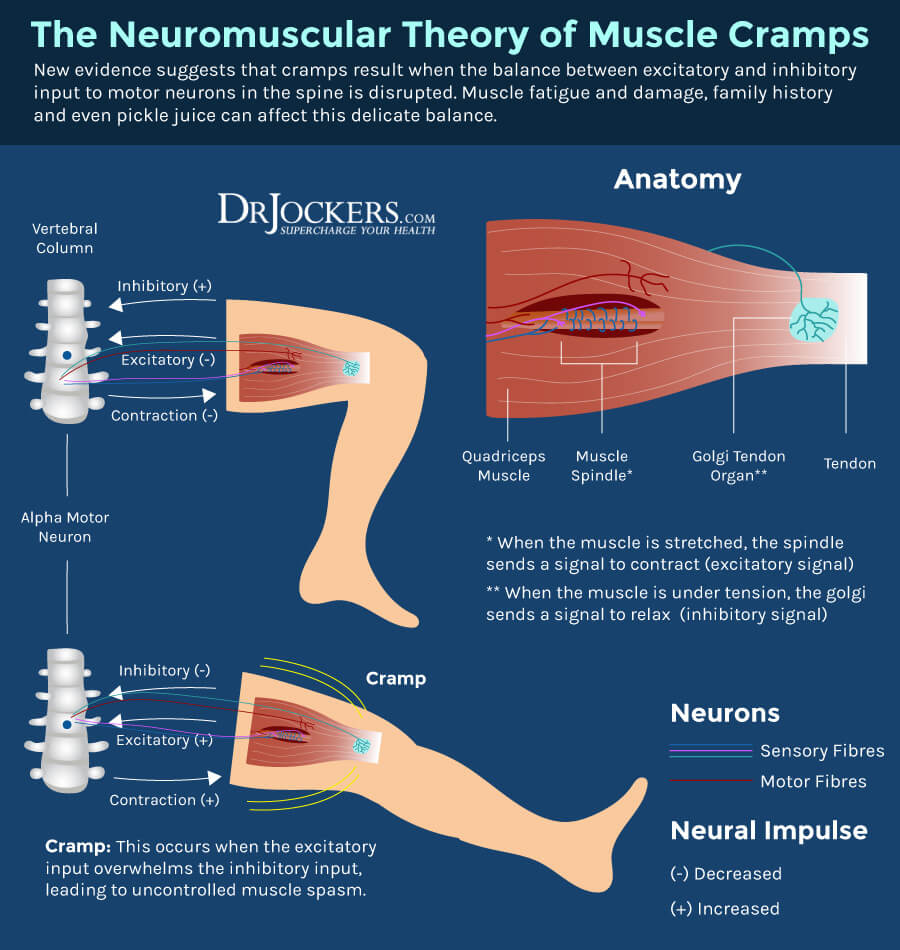
Maintaining Proper Hydration & Mineral Balance
Now you are aware of the physiological changes that contribute to frequent urination, constipation, diarrhea, muscle cramps, and heart palpitations. Fortunately, the strategies to mitigate these side effects are quite simple. With a little proactivity and planning, these keto side effects will likely be less of an issue.
My top strategies for proper hydration and mineral balance are:
- Super Hydration: Drink plenty of water, mineral-rich broths, and hydrating beverages. You want to ensure that any toxins being released are flushed out effectively.
- Use High Quality Salt: Use a high-quality salt in generous amounts in all of your meals. This will add back in sodium and other trace minerals that are excreted more rapidly during keto-adaptation. I like either Himalayan pink or Celtic (gray) sea salt as they are the highest in trace minerals.
- Consume Mineral-Rich Foods: Increase your intake of mineral-rich foods like leafy greens, celery, cucumber, and seaweeds. As I mentioned before, I love to snack on Sea Snax as they provide plenty of minerals and are keto-friendly.
- Use a Magnesium Supplement: Unless you are experiencing diarrhea, a magnesium supplement can work great for helping balance electrolytes and hydration levels. As you can see, magnesium can help keto-adaptation in many ways. Using 1 gram of the L-threonate form 3x daily is my general recommendation. If diarrhea occurs, lower to once or twice a day until it subsides.
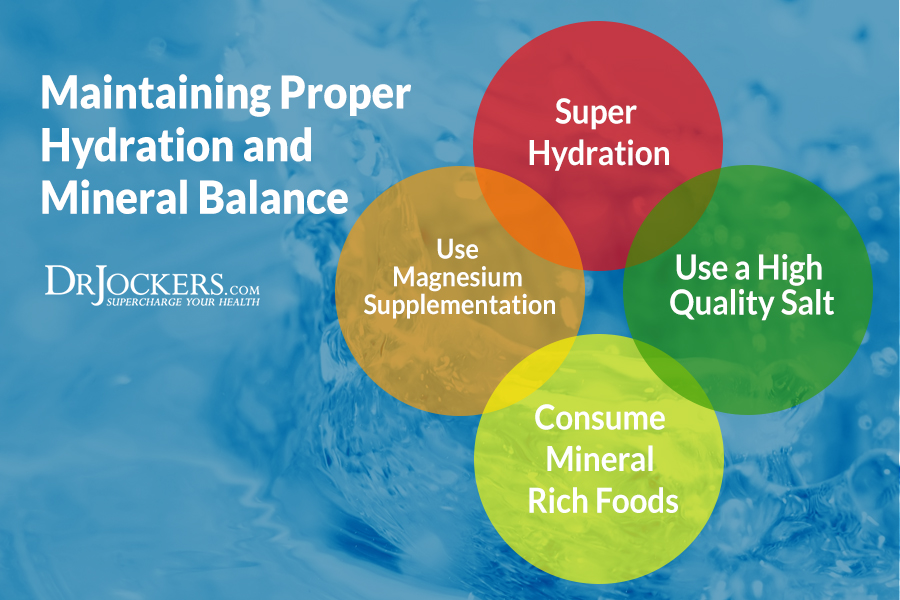
Keto Breath
One of the keto side effects people may complain about is keto breath. Although this is not quite related to the three major causes we’ve discussed so far, keto breath is something that many people experience in the early stages of keto adaptation. When you begin producing ketones, you produce them in several different forms. The ketone that is released through the breath is acetone and is responsible for the keto breath that some people experience.
Luckily, acetone is only released in higher amounts during the initial adaptation phase and tends to wear off rather quickly (within 1-2 weeks).
Keto Breath Solutions
If this is an issue for you, you may consider brushing your teeth more frequently and using natural breath fresheners throughout the day. It is also important to maintain proper hydration during this time, as a dry mouth can drastically exacerbate this side effect.
Some solid strategies include oil pulling with coconut oil and using a natural mouthwash when needed. I prefer this oral essentials mouthwash because it is natural and not as harsh as traditional brands.
You can also chew on fennel seeds, rosemary, mint, or parsley when needed as a natural breath freshener.

Precautions For Certain Conditions
While the ketogenic diet can be therapeutic for individuals with certain conditions, precautions need to be taken to prevent any severe keto side effects. If you are taking medications to control your condition, this is especially important.
High Blood Pressure: When drastically decreasing carbohydrate consumption, blood pressure may drop naturally. You may want to discuss this with your prescribing physician before implementing a ketogenic diet and take steps to monitor your body’s response to the change in diet.
If you start to feel light-headed or experience heart palpitations, this may be due to a drop in blood pressure. It may be helpful to monitor your blood pressure during this time to quantify your body’s response to the initial adaptation phase.
Diabetics: When you are eating less carbs and sugar, you will likely need less insulin or blood-sugar lowering medications to maintain blood sugar balance. Again, speak with your physician about this potential change and work with him to coordinate proper medication dosage.
If you experience symptoms like fatigue, intense hunger and cravings, light-headedness, or heart palpitations, this may be a sign your blood sugar has dropped too low. Use a blood glucose monitor to track your body’s response to the diet change and make sure your body is adapting properly. If necessary, consult your physician for necessary medication changes.
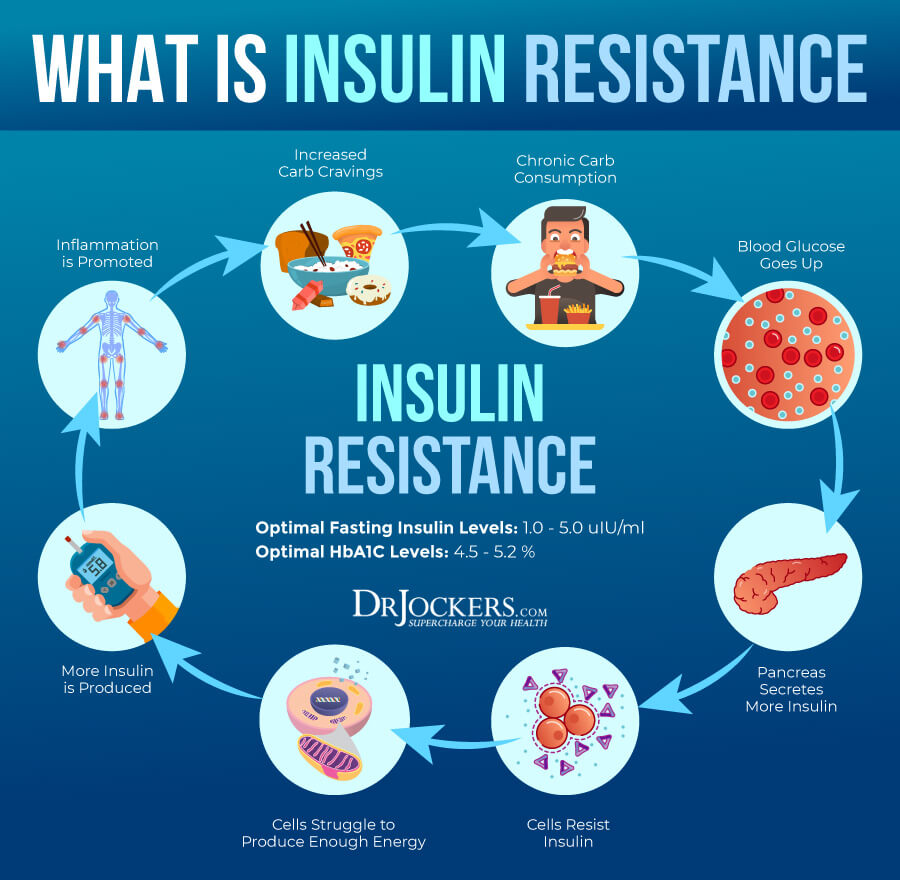
Exogenous Ketones
One of the best ways to get your body keto adapted quickly is through the use of exogenous ketones. Exogenous ketones are a supplemental form of ketones that are identical to the ketone bodies (Beta-hydroxybutyrate or BHB) that our body makes.
Our body needs some time to get used to ketones being elevated in the bloodstream to begin using them effectively and efficiently for cellular energy. By consuming an exogenous ketone supplement, you get the body adapted to ketones faster and using them as an energy source before the body has built the metabolic machinery to produce its own ketones effectively.
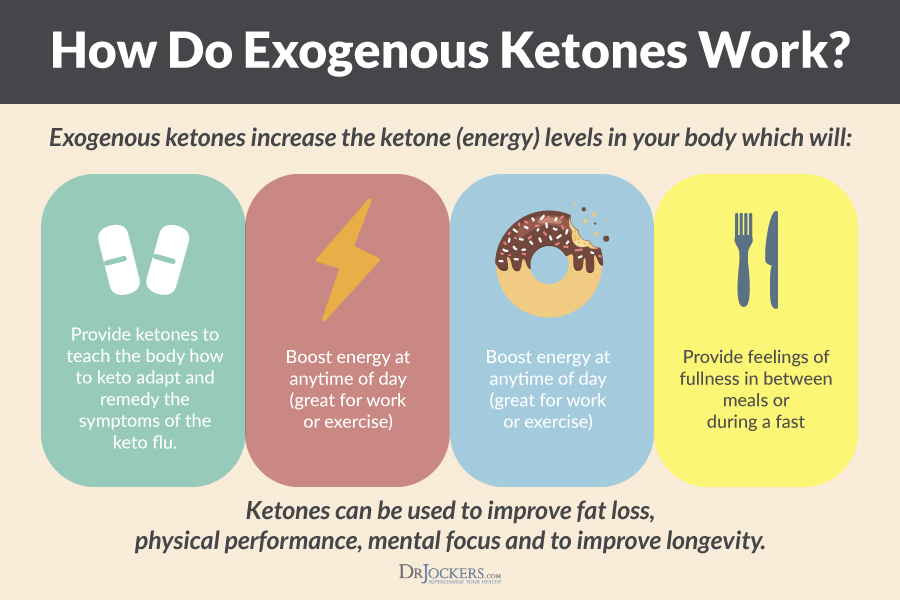
Who Would Benefit From Exogenous Ketones
Most anyone who has struggled with keto side effects or just hasn’t felt good on a ketogenic diet stands to benefit greatly from exogenous ketones during the adaptation phase and beyond. Additionally, for people who have poor liver or gallbladder function, have poor mitochondrial health, or have never tried a ketogenic diet, the process of producing ketones can be stressful.
In these cases, exogenous ketones can be powerful. Exogenous ketones are a supplement that can be used to supply the body with a source of ketones that require almost no processing by the digestive tract and liver. This makes them great not only for helping someone get into ketosis, but also as a quick energy source and performance enhancer for the brain and body.
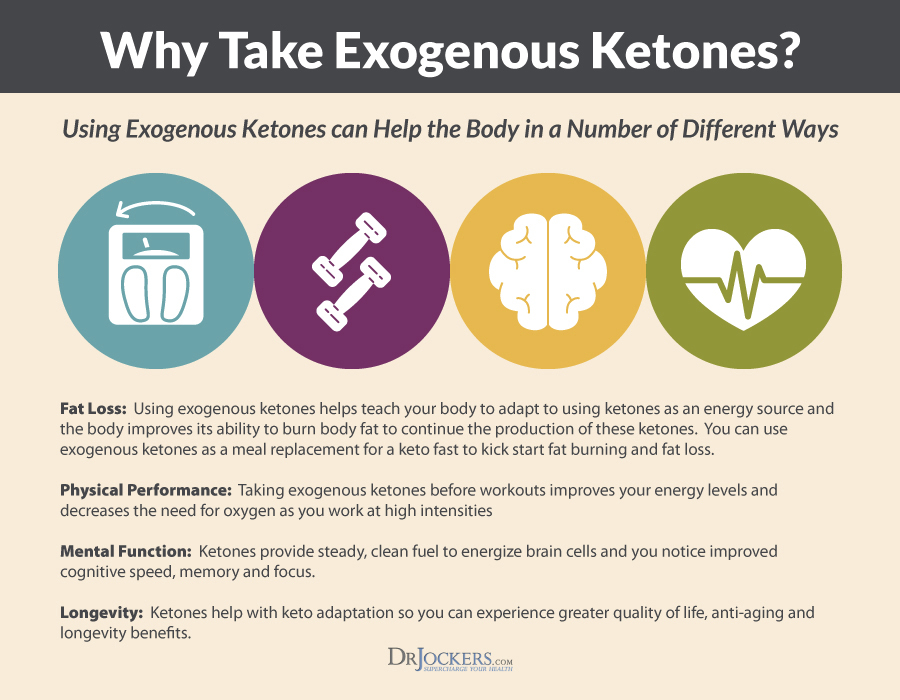
Introducing Keto Brain MCT Oil:
Keto Brain is a pure 8 carbon chain caprylic acid. It is free of lauric acid and capric acid. This formulation turns very quickly into ketones in the body. This means that it is instant fuel for the brain. It helps to keep ketones up and allows the body to easily switch over from burning sugar to ketones as its primary fuel source.
Keto Brain is extracted from coconut oil in a time consuming process. No metal catalysts are used in the manufacturing process, and every batch of our Keto Brain is tested for heavy metals and other toxins to ensure it is 100% pure.
Keto Brain works directly in cells to give you an extra boost to maximize your performance. Tired of constantly craving sugar or caffeine? Want a thermogenic immune boost with your energy? Try Keto Brain, and I am sure you will see a significant improvement!
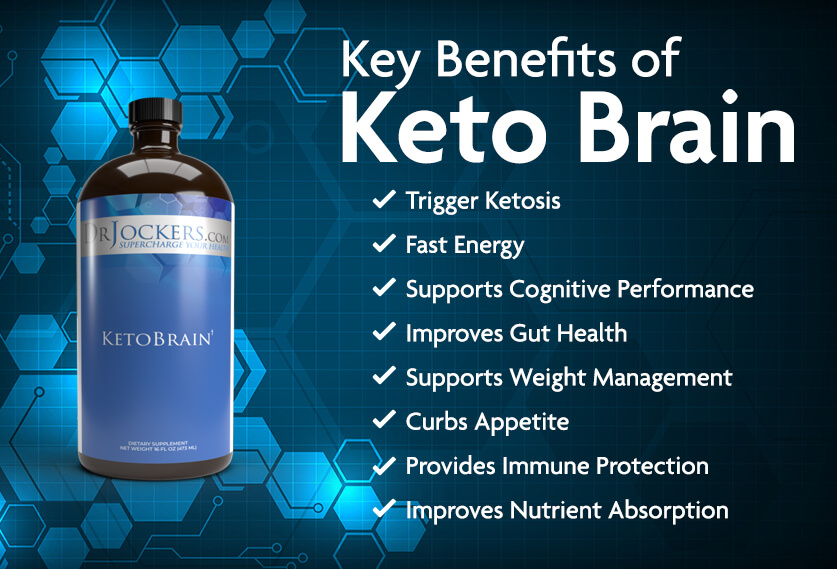
Summary
The common keto side effects that people experience come down to three primary culprits: Hypoglycemia, HPA axis dysfunction, and poor hydration/mineral balance. The following strategies will help prevent these underlying issues and their respective side effects:
Stay Hydrated: Be sure to get at least half your body weight in ounces of water daily. Over time, you will desire more water, and you can even try to shoot for 1 ounce of water per pound of body weight (Example: 160 lbs. = 160 Oz).
This may seem like a lot at first, but try your best to hit this target. If you are a larger individual, try getting ¾ of your body weight in ounces.
Eat More Salt: Shoot for at least 2 tsps. of salt per day, if not more. My favorite sources are Himalayan Sea Salt, Redmond’s Real Salt, and Celtic Sea Salt.
Increase Meal Frequency: Eating every 3-4 hours will ease the hypoglycemic stress on the body. This will equate to 4-5 small meals throughout the day. As you become adapted, fasting for longer periods of time will become much easier.
Use Organic Broths: Sipping on broths throughout the day is a great way to stay hydrated while also getting additional minerals and amino acids into your system. Try a good organic, free-range or pasture-raised chicken or beef broth. This can be a traditional broth or even bone broth.
Mineral-Rich Foods: Consuming mineral-rich foods will help maintain proper hydration and support the HPA axis. My favorites are celery, cucumber, and seaweeds. I like Sea Snax, which are really tasty, totally keto, and provide a ton of healthy minerals.
Fat With Every Meal: Every meal should have at least one source of healthy fats. Ideally, you want to shoot for 70-80% of calories from fats for any given meal. My top sources are coconut (oil/butter/flakes/milk), grass-fed butter or ghee, olives/olive oil, and avocados.
Consider Adding Supplemental Magnesium: During changes in blood sugar, magnesium is used up quickly. Magnesium is like oil to a car and keeps the body running smoothly on the cellular level.
I have found that using this Brain Calm Magnesium throughout the day to be of tremendous help during keto-adaptation. I would recommend using 1 scoop in water 1-3 times per day, depending on how your body is responding.
Consider Using C8 MCT Oil: Providing pre-formed ketones takes stress off of the body and improves the body’s ability to use ketones as a fuel source. This, in turn, improves the body’s ability to make its own ketones and speeds up the keto adaptation process. Take 1-2 tsps. of Keto Brain C8 MCT oil with each meal.
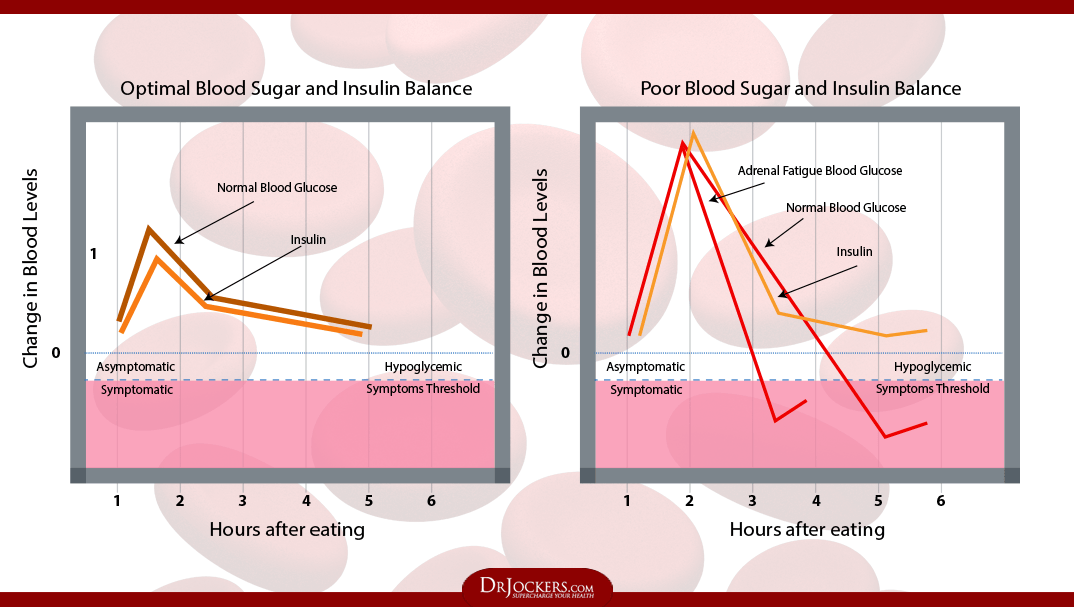
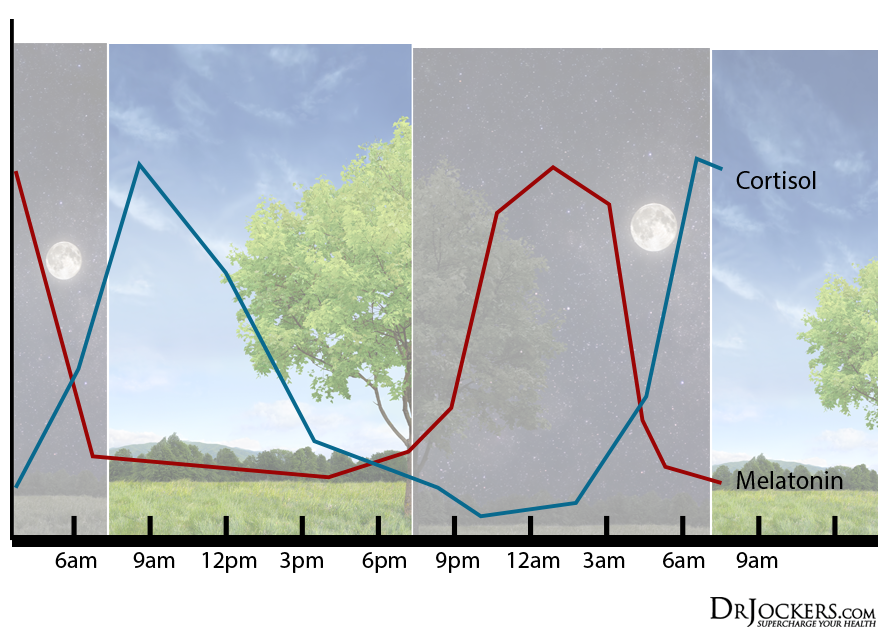




Hello Dr
You are right
Like any significant change to the diet, when starting a ketogenic diet, it is normal to experience one or more side effects as the body adapts to a new way of eating
But the health benefits can be very important.
You only need the advice of a qualified professional
Yes Pascual the benefits are often more valuable than the temporary side effects!
Hello!
I was starting the Keto diet and wondering if any one else has nausea and feeling “billious” as a response – and what to do about it! ( I drink fresh lemon in water….any ideas are appreciated)
I wondered if that is part of keto flu? although it is not listed here…
thanks so much!
I am curious about what has been referred to as “keto rash”. I decided to shift from a GAPS Diet to a ketogenic one. I wasn’t tracking my carbs specifically and was doing well. Then I developed this rash on various parts of my body. I originally thought it might have been either pecan or MCT (C8) that I started having, but I have eliminated both of those. Then I did some research and realized that others have also experienced this rash after starting a strict Ketogenic Diet. There are a few solutions running about–most of which include introducing carbs at higher levels. Antibiotics were also listed. Anyway, I was wondering if you have run across this type of rash as it relates to starting a low-carb diet? Any thoughts, Dr. Jockers?
Hey Jeffrey, this is likely either due to a change in your gut bacteria or due to a detox effect caused by the breakdown of stored fat cells (fats store many toxins). I would recommend:
ProOmega CRP: 2 Caps w/ each meal
Activated Charcoal: 2 Caps between meals
Combined this will help control inflammation and aid your body in detoxification as you become adapted!
I take thyroxine 150mgs for my underactive thyroid issue. My dose does need to be adjusted regularly. I have gradually put weight on despite eating healthily & generally avoiding fats, because of a raised Cholesterol level. I can’t take Statins either because it causes muscle problem! All in all I am at a loss. I really want to lose my excess weight (28pounds). I have started the keto diet now & it’s a way of eating totally alien to me! I’m eating foods I never eat! I’m only a week in & am having dizzy episodes but am taking the steps to stop these but now I have read that having thyroid issues I should not pursue it. I’m really devastated. Can I get around this?
Hey Linda, you would still derive benefit from consuming a lower carb/ higher fat diet, but going fully ketogenic before your thyroid issue has been addressed may not be helpful. Here are some great articles that may help:
https://drjockers.com/hypothyroidism-nutrition-plan/
https://drjockers.com/18-strategies-to-beat-hypothyroidism-naturally/
So, if one has adrenal fatigue, one should not attempt a keto diet?
Typically not Shelley. You could try incorporating a low-carb, high-fat diet while using a high quality MCT oil to assist with ketone production but if you feel very sluggish for longer than a week you should use more carbs from low glycemic sources along with strategies to support the adrenals and balance blood sugar.
Ok. I have MCT oil. It’s day six. I got a metallic taste in my mouth last night (day 5), and have had 2 hypoglycemia attacks over night (took small amount of OJ and some 2 tbsp of flaxseed meal with half & half). Slowly felt better throughout the day. Bought just about all the adrenal support products you recommend this a.m. My main issue since last night: my heart has been pounding, non stop. I read it might be cortisol induced reflexive hypoglycemia or something? I’ve never been diagnosed with adrenal exhaustion, but I am noticing tiredness and weight gain (I’m 47). So, the adrenal exhaustion perhaps is self diagnosed (I’m know, so annoying for a physician to hear! I hate saying it myself). But, I’m wondering, if I’m just perimenopausal instead, should I continue on keto? If so, will the heart pounding resolve after a certain time? (Days? Weeks?) Plesse excuse how long this is. Just trying to anticipate questions.
tired and dizzy. Can I take vitamins to help this out
Hey Darlene, sorry to hear about this. Start with making sure you are consuming plenty of water with electrolytes from a natural salt as outlined in this article. Using a multi vitamin could be beneficial too. If it resides I would suggest working with one of our coaches to see what is going on.
Great article Doc! Question: One of the world top experts in high fat low carb diet, Dr Tim Noakes has stated that top level athletes actually perform better on keto, as himself an extreme marathoner , cured his type 2 diabetes by going keto. In the light of what we know today about keto, would you still assert that athletes shouldn’t adopt ketosis as their desired state?
Hey Komi! It depends. I would encourage just testing it out and seeing how your body responds!
I’m in ketogenesis now – 3 weeks in. Lost over 10kg. Protein shakes. Great. But what I wanted to add was that i’m Diabetic (2) and quite badly so. I was Injecting insulin twice a day – Novomix (part immediate, part slow acting). But since I went into keto, my blood sugar has been steady between 5-9, normal range. No injections needed. And no hypo attacks either – that occurs below a reading of 4, for me. This is NOT a cure of course – it’s directly related to low carb intake. But I do wonder if discontinuing insulin is partly responsible for my improvement in alertness, activity level and so on. Magnesium tabs, 1000 units twice a day, have also been helpful – I suffer leg and foot cramps due to spinal arthritis – but they had worsened until I upped the dose.
Hey Andrew, this is awesome news! Glad you are feeling the benefits! Some people will see improved insulin sensitivity with time on this sort of lifestyle. You are probably also experiencing the benefits of improved mitochondrial health.
Thank you Dr Jockers! I recently came across your website and i absolutely love what you do. I am an advanced practice nurse and just started a part time keto coaching practice.I am already amazed by the changes i see in my clients. Do you have by chance a training program for keto coaches. If not, is there one out there that you recommend? Thank you in advance.
Thanks for reading Komi! I do have this resource available: https://drjockers.com/ketogenic-program-2/
thank you Dr. Jockers for the informative article. I have hypothyroidism from 3 parathyroid cysts being removed along with 80% of my thyroid. It is under control with Levothyroxine and liathyronine. I have been on the keto diet for almost 4 weeks and am still experiencing heart palpatations, dizzyness and low energy. I have been quite strict and feel disappointed. I have Chronic Lymphocytic Leukemia and my oncologist was ok with me going on it. I feel like this diet would help me have more energy and help my overall health. Any advise would be appreciated. thank you, Inika
Sorry to hear about this Anika, here is a helpful article for this: https://drjockers.com/ketogenic-diet-hypothyroid/
Thank you Dr. Jockers,
This is just the information I needed!
Awesome Inika!
Thanks Dr. Jockey…very informative article. Im into pure keto diet almost a week now but started illiminating sugar and carbs 3weeks ago and the side effects that i’ve encountered are frequently urinating and light headache only. Is it good or not? I’ve never consult a specialist before doing keto diet but i do my research, is it okay? As of now i’ve loose almost 11lbs. Im just curious how can i get the percentage of fats, protein etc in my meals? Do i need to measure it all? How can i measure the percentage of foods that i need to eat?is there any ways?
Thanks and more power!
Thanks Dr. Jockers…very informative article. Im into pure keto diet almost a week now but started illiminating sugar and carbs 3weeks ago and the side effects that i’ve encountered are frequently urinating and light headache only. Is it good or not? I’ve never consult a specialist before doing keto diet but i do my research, is it okay? As of now i’ve loose almost 11lbs. Im just curious how can i get the percentage of fats, protein etc in my meals? Do i need to measure it all? How can i measure the percentage of foods that i need to eat?is there any ways?
Thanks and more power!
Hey Vihnz,
These are common. Make sure you drink plenty of water and get plenty of salt. Here is a good article to help: https://drjockers.com/follow-ketogenic-diet/
Thank you so much for the article. For me it came at the right time. I’ve just started the keto diet past 1 week and I already have some of the side effects popping up. Thank you thank you thank you so much… I’ll try these and hope to successfully complete the 3 months weight loss challenge.
You got this Tanushree!
Holy smokes what a great article! Thank you for such a thorough read. I have been doing a “keto diet” (keeping carb’s under 40 g/day-I use a tracker) since the beginning of January and felt “fluish” at first like you state. That passed and this past week (It is now Feb 11)my weight loss has stalled so I am experimenting with even lower carb’s (15-20g/day). This change has really interrupted my sleep the past 3 nights, hence me typing this at 4:44 in the am after deciding to do some research the past hour. Will this too pass? Or is it time for a Mg supplement? And if so can I use a pill rather than a drink? Between all the water and the bone broth I am unsure how more I will want to drink ha! But if I have to then I will, just thought I would ask. Again, thank you for all you are doing and such a fantastic read!
Thanks for reading Roxanne! You could try the following: eating more frequently, using MCT oils, consuming plenty of salts, and potentially using an HPA axis supporting formula such as adapt-strong: https://store.drjockers.com/products/adapt-strong we also have an awesome magnesium lotion with melatonin that could be helpful in this case: https://store.drjockers.com/products/magnesium-lotion-goodnight-with-melatonin
My son who is 38 years old, started a Keto Diet about three months ago. In September and October of 2017, we found number 4 and 5 fast-growing astrocytoma brain tumors. In February of last year, they found brain tumor three. It was treated with a high 30-minute dose of radiation, followed by 5 days on and 23 off, oral chemo plan for 12 months and it has shown no growth (The first and second tumors were surgically removed in 2008 and 2013 and these were given 5 weeks of radiation treatments, the second received a 6 month oral chemo treatment).
My son started the Keto Diet (not perfectly) with the ok of his Dr and a Different Oral Chemo at the same time. Last Tuesday an MRI indicated no new growth or no new tumors. We don’t know if the new Chemo, Keto diet, lots of prays or what has stopped the tumors from growing.I found your site after looking for possible adverse reactions to Keto Diets, and appreciate your research. His platelets are low now and never have been low before. This is stopping the next Chemo treatment. I understand that being on Chemo for 12 months could have created the low platelets and now the possibility that the Keto Diet could also be causing low platelets is frustrating. They will do a new blood test Tuesday to see if the platelets have increased. Any suggestions about how if possible to increase the platelets on the Keto Diet would be helpful.
Hey Jan, great to hear the tumor growth stopped! I am a huge fan of trace mineral rich foods and grass-fed organ meats such as heart and liver for helping support blood cell formation. https://drjockers.com/top-12-trace-mineral-rich-foods/
Does anyone experience lower back pain or side pain on the Keto diet?
Hey Aaron, that isn’t common. Are you constipated by any chance? Some people have changes in their microbiome and have constipation at first that can lead to lower back and side pain.
I’m desperate to find some answers~I have no history of sensitivity to anything, no allergies. I understand allergies can happen at any time. I started the Keto diet and in a one month time I had four separate episodes of my tongue swelling~each episode worse than the one before. I LOVED this diet~felt great, handled it with ease. The last episode almost put me in the hospital~my tongue was so swollen it was coming out of my mouth making it difficult to swollen and breath. I had no choice but to narrow it down to Ketosis. All the foods were the same that I have eaten all my life. No new meds. The last episode I took 2 Benadryl and pulled myself out of Ketosis with consuming a Dr.Pepper, and 2 pieces of white toast. I was terrified. Everyone on Facebook in all these Keto sites tell me it has nothing to do with Ketosis….but I’ve tried literally everything I consumed when a was on that WOE and I’ve had no reaction in days. My body feels horrible, I have no energy, my entire body aches. I want back on the Keto diet because my body was responding really well to it~except for my tongue.
HELP ME PLEASE!!!
Sorry to hear about this Cristy! There are changes that take place in your microbiome when you go keto that could have contributed to this as well as a food sensitivity. I would recommend reaching out to a keto coach such as Michael Dugan FDN-P here and setting up a coaching plan to get to the bottom of this: https://drjockers.com/michael-fdn-p/
swollow and breathe*
Hi Dr. Jockers. Your article is very thorough, thank you. I’ve been moving slowly into the keto diet and so far everything is good except for my stools now float. Is the higher increase in fats to blame? I’m taking digestive enzymes before each meal and I still have my gallbladder.
Can I practice pure keto diet for 3 months to reduce my weight first, then slowly take in a bit more carbo & sugar in order to maintain my weight?
Thanks & best regards.
You can definitely try that out Yvonne!
Can I do keto diet even without the help of a nutrition professional or a dietician? Should I have to consult a doctor first before I start with this type of diet?
Hey Tyler, this mostly depends on the individual, some can put the pieces together on their own and others like to be guided. I do have an online keto program that lays out everything you need to be successful! https://drjockers.com/ketogenic-program-2/
Hi Dr Jockers,
I am beside myself. I’m at the point that I’m afraid to eat anything. It goes right through me!! I’ve had liquid diarrhea for 3 weeks now and don’t know what to do. I’m up through the night and it’s really messing with my sleep. I have breast cancer and I really need to do this diet. I’m very worried. I have been taking psyllium husks but I’m afraid to go overboard. Is it ok to take that every day? Thanks you!
Hey Nancy, psyllium husk isn’t necessarily a good thing to be taking. Try instead using the lower carb foods in this article: https://drjockers.com/top-33-prebiotic-foods/
Hello Dr Jockers!
First I’ve been looking at some of your videos on the Keto Summit you have organized. There’s some truly amazing content! Thank you for holding it.
I’m still relatively new to the Keto world. It was my goal this year to get a better handle on my health (even though I’ve always been fairly health conscious). That said 7 years ago I had been diagnosised with an autoimmune disease called vitiligo and have resulted in having to take immunosuppressant medication for treatment. I am excited
By the potential upside a Keto diet has to offer for its anti inflammatory affects
and combating hypothyroidism. I also forgot to mention I’m a long haul (international) Airline Pilot; a lifestyle that pretty much guarantees chronic sleep debt. Also not good for my autoimmune condition.
Ultimately my initial question is simple… I have purchased a blood glucose meter to start tracking my A1c levels but am currently at a lose to find credible resources for how to target my optimal A1C levels using my glucose meter to measure my Ketosis.
Also besides A1C, Vitamin D, and CRP are there any other biomarkers for inflammation I can easily track and specifically address with a Keto diet.
Finally are there any strategies you can recommend for someone like myself who deals with chronic sleep debt via jet lag and night work schedules that I can further address with supplements and/or a Keto lifestyle. I also do IF but am a little stumped as to how to proceed when I’m dealing in multiple time zones.
I know I’ve ask a lot of questions but I’m eternally grateful for any information and insights you can provide.
Thanks so much!
Hey Alex! This is a lot of information, feel free to reach out to our keto coach Michael through his email michael@drjockers.com and he can help you come up with solutions!
I have been working more seriously on my health after a major health crash 5 years ago, possible Rocky Mountain Spotted Fever/Lyme. Organ functions are getting better including heart, liver and gallbladder. Pancreas is at stage 3 insufficiency. I’m concerned about a high fat, protein diet. Still have IBS and gut infections. Thinking that just bone broth and easy to digest foods might be good at this point for healing?
Hey Sharon, you may consider water and bone broth fasting followed by a gut-healing liquid nutrition phase. Look out for a new article on this coming up soon!
I have been on the Keto diet for 2 months now and have lost 35 lbs with no side effects that I know of until the last 3 days, I have had diarrehia, is this normal?
Great to hear Bob! The diarrhea may have been from a number of different causes and not due to keto. Here is a helpful article: https://drjockers.com/diarrhea-causes/
Hi Dr. Jockers,
I had type 1 diabetes for 30+ yrs; CKD/ESRD x8 yrs and did peritoneal dialysis for 5 yrs before getting a kidney pancreas transplant nearly 5 years ago. Then had a below knee amputation and a rather sedentry life since-need to lose weight. Is this a safe diet for me? I am terrified of ketosis (DKA nearly killed me when i was 12 yrs old) so anything messing with stuff like that really makes me nervous. TIA!
Hey Lisa, it should be safe but I would recommend lowering your carb intake over several weeks while incorporating MCT oils and other healthy fats to see how you feel. Experimenting with exogenous ketones may be helpful too. You will need to adjust your insulin accordingly.
Dr Jockers, I have done the ketogenic WOE for a year now. I would appreciate some advice about adding carb cycling to my WOE. Thank you. I am 72, 5’8” and weigh 152 lbs, if that helps :).
Hey Marcy! Simply have one higher carb day per week where you consume healthy carb sources like fresh fruit, sweet potatoes, or white rice cooked in coconut oil! Saturday is usually a great day for this! Start with just one higher carb meal on Saturday for about a month and see how that works! This article has more information: https://drjockers.com/follow-cyclic-ketogenic-diet/
Hello Dr. Jockers, in the past few months I have been working on cleaning up my diet. Eating gluten & dairy free as much as possible. I started taking exogenous ketones at the same time. I got a juicer for Christmas and about 3 weeks ago I added celery juice ( 1st thing in the AM) and a carrot, apple, turmeric juice in the afternoon. Some days I am fine and other days I have sudden diarrhea within an hour of drinking the celery juice. I’ve read so much about the benefits of drinking it but am wondering if the ketones are reacting to it adversely? Please let me know your thoughts on this.
PS – I am a healthy 68 year old woman.
Thank you
Sorry to hear that Nono! Not sure if the ketones are reacting with the celery juice. You may have a sensitivity to either the ketones, the sweeteners in it or MCT oil in it or the celery juice.
I would try eliminating the ketones and see if the celery juice alone causes the diarrhea. If so, than try eliminating the celery juice and see if the exogenous ketones alone cause the diarrhea.
I started the ketogenic diet because I am a diabetic and refuse to take the medications that Drs advise because I’ve had bad reactions to them. I have lost about 20 pounds and the blood glucose is better controlled. I am also sleeping well most of the time. I did have the diarrhea but that has worked itself out. The one problem I am having is low blood pressure. I awoke dizzy one night and decided to check it and it was 73/48. I add himalayan sea salt to the water as recommended but sometimes still have a problem. A friend recommended using cream of tartar but what I have read said that it lowers blood pressure. Would I have to worry about low blood pressure if I added this to my water???
Thank you.
Hey Penny,
I would recommend adding in a bit more salt to your diet. Also, I would recommend taking adaptogenic herbs such as our Adapt Strong which will really help https://store.drjockers.com/products/adapt-strong
I am a 7 year stroke survivor that is partially paralyzed from the stroke. I work part time and while working I walk at least 2 miles at work three to five times per week, but I can only walk 1 mph if even that speed. Which I know average speed is 3 mph when walking. I am 40 pounds overweight due to not being to do cardio workouts. I take aspirin daily as a blood thinner. I have considered getting on the keto diet. I drink sweet tea and one dr pepper per day along with coffee and water. I talked to my dr about this diet all he could tell me was he hasn’t researched it enough but knew of someone that lost weight on it. For my health I need to maintain a healthy weight and not be overweight. I have a b12 deficiency along with folic acid. I have not been taking any supplements for either.
Would you think this would put me at risk on this diet? And would I be able to start the pills and just gradually cut out the sweet tea and one dr pepper to none? What would happen if I took the pills and still consumed sugars/carbohydrates?
Hey there! I started on the keto diet fully a few days ago but have been slowly working my way into for a couple weeks; eliminating . I have unspecified/other specified bipolar and have already spoken with my doctor about starting this diet. She said she recommends it fully. Today, I feel tired, foggy and I’ve had a headache for two days in a row. My mood is lower than I would like but being bipolar, I can’t really tell if its that or keto. There really aren’t many articles for keto and bipolar and I was wondering if you know of anyone with this condition and doing keto?
Thanks
Yes this is all normal parts of the keto adaptation process. Be sure to follow the recommendations in the article!
I am on my sixth week of keto diet, suddenly starting to have a joints pain in both ankles, one of the wrists ( even have one visible bump under the wrist skin) as well as swollen knees. Is it normal or am I building up some kind of crystals in my joints similar to kidney stones? Should I stop dieting?
Hey Alex, I am sorry I missed your question! The keto diet is actually a great way to reduce stress on the joints and associated inflammation. I would recommend working with a functional health practitioner to get to the root cause of your problems and customize a specific plan that works for your health goals! This article can help: https://drjockers.com/functional-nutrition-tips-to-find-a-great-health-coach/
Hi I only took one me to tablet and felt extremely nauseous is this normal and how can I stop it from happening.
Hey Lisa, I am sorry that you had this experience. Can you clarify what tablet you consumed?
Dear Doctor. I have been on a very strict Ketone Diet for about 1-1/2 years. I has been very helpful in many ways. When I say strict, I mean
2 meals a day of green juice or steamed greens, a mid-size portion of protein, either ground turkey or wild caught salmon, olive oil and almond butter. No fruits or carbs of any kind. First of all, it has been a
great discipline and learning experience, both physically and spiritually.
I am a much better person now as I have fully embraced Jesus and His
teachings. And…certain little things (sores and red spots) on my skin
seemed to be vanishing). But, as time goes on I feel much weaker and the skin successes may be reversing. I am used to working hard outside. Now I have to rest more often an experience some vertigo off and on. Do you have some ideas that might reverse these symptoms? I do take magnesium, just not the threonate. I am 84 years young.
Hey Melody, thanks for writing! I would consider doing some carb cycling to see if this helps you improve. Beyond that, I would recommend getting with a functional health coach to run some labs and look at thyroid health and mitochondrial function. https://drjockers.com/functional-nutrition-tips-to-find-a-great-health-coach/
I’ve been following a ketogenic diet for a little over two years. I recently had my annual blood work done and my doctor noted a decrease in my white blood cell count. We discussed it and there was some concern. I read later that epileptic patients being treated with a ketogenic diet sometimes display a lowered white blood cell count after a period of time. Do you have any thoughts or comments on this?
Yes I haven’t seen that this is common. One thing you may consider is adding in more protein (since WBC’s are proteins) and see if that helps improve things. You can also take some immune modulating herbs and nutrients like vitamin D, vitamin C, garlic, ginger, probiotics.
I tried this week the keto diet, but on day 3, I started to have diarrhea and anxiety. I took carbs and it went away. I did again one day keto and didn’t felt well, really tense and anxious.
Is there anybody experiencing anxiety with keto? And didn’t see it on the common side effects…
I don’t eat any sugar or refined food, but fruits, dried fruits, honey, sometimes white rice or chickpeas. Is my anxiety caused by hypoglycemia? or adrenal fatigue? I don’t know what I should do! Should I alternate between carb days and keto days?
Yes the anxiety is related to hypoglycemia. You also are most likely having trouble metabolizing the fats, which will result in diarrhea. Here is a helpful article: https://drjockers.com/trouble-digesting-fats-hacks/
I have just started the keto diet and on third day of taking tablets I vomited. Is this normal and should I continue.
Hello Linda, I am not sure what tablets you are taking?
Hello dr Jockers ,I am thinking about trying the keto pills . I am a type 2 diabetic.I have high blood pressure ,high cholesterol & triglycerides famila, also diverticulitis . Unsure of crohns or uc . I am on a lot of meds for all of these . Glipizide 3-10mgs daily , fenofibrate , Crestor , vascepa , losartan 50 mgs daily ,carvedilol 12.5x 2 daily norvasc 1 daily . Had to stop metformin after yrs of taking it due to chronic diarrhea.I am 220lbs ,5’6. And need to loose this weight . I feel unhealthy. I do also have evening cocktails 2x a week . Please any advice helpful before I start taking the keto route? Thank you Gayla
Sorry to hear this! I would recommend working with a functional health practitioner to create a plan for you: https://drjockers.lpages.co/long-distance-coaching-dr-jockers/
Please develop and sell an electrolyte blend that uses no stevia, just monk fruit. No citrate. Flavored ok for some but i prefer unflavored.
Thanks and we will look into that!